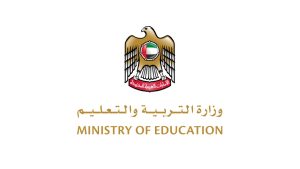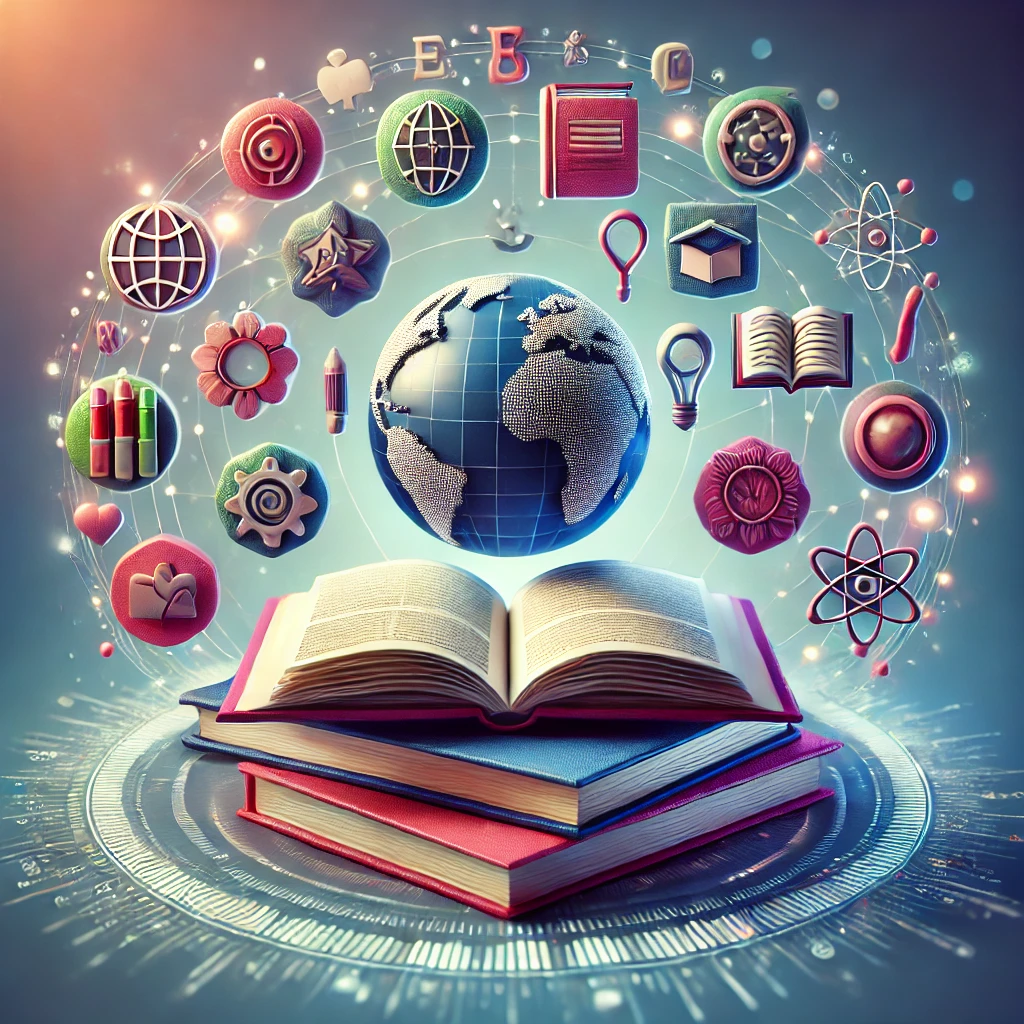
The UAE Ministry of Education (MoE) Curriculum is designed to provide a holistic and comprehensive education from Kindergarten through Grade 12, emphasizing academic excellence, Islamic values, cultural heritage, and global awareness. The UAE MoE has implemented various reforms in recent years to modernize the curriculum, aligning it with international standards and the UAE’s Vision 2021 and Centennial 2071 goals, which focus on preparing students for future challenges and fostering lifelong learning.
1. Structure of the UAE Ministry of Education Curriculum
The curriculum is divided into several stages:
- Kindergarten (KG1-KG2): Ages 4-5, focused on early childhood development.
- Cycle 1 (Grades 1-5): Ages 6-10, focused on foundational skills.
- Cycle 2 (Grades 6-9): Ages 11-14, introducing more advanced concepts.
- Cycle 3 (Grades 10-12): Ages 15-18, specialized academic and vocational pathways.
Upon completing Grade 12, students earn a High School Diploma recognized by UAE universities and internationally, allowing them to pursue higher education or vocational training.
2. Core Subjects in the UAE Ministry of Education Curriculum
Kindergarten (KG1-KG2)
- Focus: Socialization, early literacy and numeracy, motor skills, and social-emotional development.
- Core Areas:
- Arabic Language: Basic vocabulary, letter recognition, simple words, and oral communication.
- Islamic Studies and Moral Education: Introduction to Islamic values, stories, and moral concepts.
- Mathematics: Counting, shapes, patterns, and basic number sense.
- Science and Environmental Awareness: Exploration of nature, seasons, animals, plants, and basic scientific concepts.
- English Language: Introduction to basic vocabulary, listening, speaking, and recognition of letters.
- Art, Music, and Physical Education: Creative expression through art and music, physical coordination, and teamwork skills.
Cycle 1 (Grades 1-5)
Focus: Foundational literacy, numeracy, language development, cultural identity, and inquiry-based learning.
Core Subjects:
- Arabic Language: Reading, writing, vocabulary building, comprehension, and grammar, with a focus on developing fluency.
- Islamic Studies and Moral Education: Quranic studies, basic principles of Islam, ethics, respect, and cultural heritage.
- Mathematics: Number operations, geometry, measurement, fractions, and problem-solving.
- Science: Introduction to life sciences, physical sciences, earth sciences, and basic environmental concepts through hands-on activities and experiments.
- Social Studies: UAE history, geography, national identity, and social responsibility.
- English Language: Reading comprehension, vocabulary expansion, writing skills, and communication.
- Information Technology and Digital Literacy: Basic computer skills, digital safety, and an introduction to coding.
- Art, Music, and Physical Education: Creativity in visual arts, music appreciation, physical fitness, teamwork, and sportsmanship.
Learning Focus: Developing literacy and numeracy skills, fostering a sense of national identity, and encouraging curiosity and social responsibility.
Cycle 2 (Grades 6-9)
Focus: Expanding knowledge in core subjects, critical thinking, digital literacy, and preparing for high school specialization.
Core Subjects:
- Arabic Language and Literature: Advanced reading, comprehension, grammar, literature (including poetry), and creative writing.
- Islamic Studies and Moral Education: Quranic studies, Hadith, Fiqh (Islamic jurisprudence), Islamic history, and personal ethics.
- Mathematics: Algebra, geometry, statistics, probability, and an introduction to more abstract mathematical concepts.
- Science: More specialized science subjects including biology, chemistry, physics, and environmental science, with a focus on scientific inquiry and experimentation.
- Social Studies: UAE’s history, geography, global studies, and introduction to economics and civics.
- English Language: Literature, essay writing, comprehension, grammar, and oral presentation skills.
- Information Technology and Digital Skills: Coding, digital communication, safe technology use, and basic problem-solving with technology.
- Physical Education, Arts, and Music: Team sports, fitness, fine arts, music theory, and opportunities for creative self-expression.
Learning Focus: Enhancing analytical and critical thinking skills, developing independence in learning, and encouraging digital literacy and responsible technology use.
Cycle 3 (Grades 10-12)
In Cycle 3, students have the option to specialize in academic or vocational pathways based on their interests and career goals. The main tracks available are Science, Arts, and Advanced Tracks, along with a Technical/Vocational Stream in some schools.
Core Curriculum in Cycle 3:
- Arabic Language and Literature: In-depth study of classical and modern Arabic literature, advanced writing skills, critical analysis, and oral presentation.
- Islamic Studies and Moral Education: Quran interpretation, Islamic philosophy, ethical debates, and moral decision-making.
- English Language and Literature: Academic and literary analysis, essay writing, research, and advanced communication skills to prepare students for higher education or professional careers.
- Mathematics (Science Track): Advanced algebra, calculus, trigonometry, and statistics, preparing students for STEM fields.
- Mathematics (Arts Track): General mathematics focusing on practical applications, data handling, and probability.
- Sciences (Science Track): Advanced courses in biology, chemistry, and physics, with a focus on laboratory work, scientific inquiry, and preparation for university STEM programs.
- Social Studies (Arts Track): Economics, UAE and world history, geography, and an introduction to sociology and psychology.
- Information Technology and Digital Skills: Advanced technology applications, coding, and introduction to digital innovation.
- Physical Education, Arts, and Electives: Continued emphasis on physical fitness, creativity in the arts, and electives based on student interests.
Vocational Track (Technical Schools): Options for students interested in applied fields such as engineering, information technology, health sciences, business, and vocational skills, leading to technical diplomas or industry certifications.
Assessment and Graduation Requirements: Students complete assessments through standardized exams and continuous evaluation, culminating in the General Secondary Education Certificate Examination (GSECE) at the end of Grade 12, which qualifies them for university or vocational training.
3. Focus on Islamic Studies and Moral Education
Islamic education is an integral component of the UAE curriculum across all grades. The content includes:
- Quranic Studies: Memorization, recitation, and understanding of Quranic verses.
- Islamic Jurisprudence (Fiqh): Study of Islamic laws, ethics, and morality.
- Prophetic Tradition (Hadith): Understanding the teachings and life of Prophet Muhammad (PBUH).
- Moral Education Program (MEP): Introduced in 2017, this program focuses on values like tolerance, respect, compassion, resilience, and social responsibility, aligned with the UAE’s cultural and ethical framework.
4. Recent Curriculum Reforms and Modernization
The UAE has implemented various reforms to enhance the quality and relevance of its curriculum:
- STEM Emphasis: Increased focus on science, technology, engineering, and mathematics to support innovation and economic diversification.
- Bilingual Education: Greater emphasis on English proficiency across all grade levels to support global communication skills while maintaining strong Arabic language instruction.
- Digital Literacy and Coding: Integration of digital skills and coding into the curriculum to prepare students for a technology-driven future.
- Career and Technical Education: Introduction of career-focused courses and technical pathways in secondary education to equip students with job-ready skills and industry knowledge.
- Critical Thinking and Problem Solving: Shift towards inquiry-based learning and project-based assessments to foster critical thinking, creativity, and independent learning.
- International Benchmarking: Aligning national standards with international benchmarks like TIMSS, PISA, and PIRLS to ensure UAE students are competitive on a global scale.
These reforms reflect the UAE’s goals to create a well-rounded, globally aware student population capable of contributing to the nation’s growth and participating in the global economy.
5. Assessment and Evaluation in the UAE Curriculum
Assessment methods in the UAE combine continuous assessment and standardized exams, emphasizing both academic knowledge and skill development:
- Continuous Assessment: Regular quizzes, assignments, projects, presentations, and classroom participation are used to monitor progress and provide ongoing feedback.
- Standardized Testing: End-of-term exams, particularly in secondary school, as well as national exams like the General Secondary Education Certificate Examination (GSECE) for Grade 12 students, which is required for university admission.
- International Assessments: Participation in assessments like PISA, TIMSS, and PIRLS helps measure UAE students’ progress in relation to global standards.
6. Key Features of the UAE Ministry of Education Curriculum
- Balanced Bilingual Curriculum: Strong focus on Arabic language and culture, combined with English proficiency to support global readiness.
- Emphasis on STEM and Digital Literacy: Preparing students for careers in technology, science, and innovation to align with the UAE’s economic goals.
- Moral and Social Responsibility: Moral Education Program (MEP) encourages values-based learning, promoting social responsibility, empathy, and respect for diversity.
- Flexible Pathways: Academic and vocational tracks in secondary education allow students to choose paths that align with their career goals.
- Preparation for Global Competitiveness: Reforms aim to equip students with skills that meet international standards, preparing them for higher education and the global job market.







